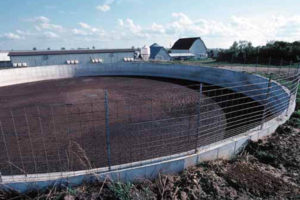The use of animals as a food technology is, by a very large margin, the most destructive technology on earth today, and very likely the most destructive technology in human history.
Patrick Brown, professor of Biochemistry, Stanford University (retired) and founder of Impossible Foods. March 11, 2021
Dr. Brown was stating what has become more and more clear over the last few decades: the foods the vast majority of us routinely eat are, quite literally, slowly destroying our ecosphere.
Nearly 20 years ago, Cornell University’s David Pimentel published one of the first summary analyses of the sustainability of typical North American diets. He showed very clearly that the standard, meat-heavy diet that prevails here is wildly unsustainable. It requires enormous fossil fuel inputs and gobbles up enormous amounts of land, the soil of which it ever more depletes.
As Pimentel noted way back then, it takes more than 10 times as much energy, on average, to produce 1 calorie of animal protein than it takes to produce 1 calorie of similarly nutritious plant protein. And it takes some 100 times as much water! That is enormous – and damaging – waste! Still, Pimentel noted, a typical vegetarian diet, which includes eggs and dairy, is not sustainable either. It’s just slower to do the damage.
Foods like meat, eggs and cheese are astronomically inefficient. To really approach sustainability we need to move to vegan diets. Recent studies have confirmed this over and over and over again, whether they state so explicitly or not. Fully plant-based diets are the most efficient and, thus, the most sustainable – by tremendous margins. Just compare the differences between a vegan burger and one made from cows!
That said, the energy and resource inputs into making a highly processed vegan burger are nevertheless relatively high – just wildly lower than those going into meat-based burgers. The best burgers from a sustainability standpoint, really, are the simple vegan ones, like black bean burgers. But that is splitting hairs. To make it simple, avoid animal products and you will be doing tremendous good.
The sooner we all switch to plant-based diets, the sooner we’ll cut down dramatically on fossil fuel consumption, on soil erosion, on pollution and on aquifer depletion. We’ll buy time to wean ourselves from our fossil fuel addiction and to transition to truly sustainable food production. If we don’t buy ourselves that time, it’s not clear how we intend to deal with the environmental devastation that we’re causing. The odds of quite serious disaster will be high.
For more information, see Earthsave Canada’s Sustainability Page.








